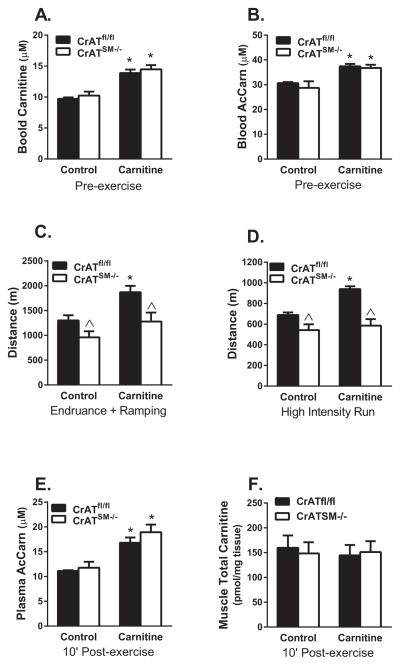Figure 5. Dietary L-Carnitine supplementation enhanced exercise performance in control but not CrATSM−/− mice.
Male mice were randomly selected to receive supplementation with pH-neutralized drinking water ±1.0 mg/ml L-carnitine for four weeks. Tandem mass spectrometry was used to assess (A) free carnitine and (B) acetylcarnitine in blood spots taken from the tail vein after 2 weeks of treatment. Running time and distance to exhaustion were determined in two separate experiments using treadmill protocols consisting of (C) endurance exercise with high intensity ramping (data shown for the ramping period only) or (D) high intensity exercise after two and four weeks of supplementation, respectively. In a separate endpoint experiment, plasma and quadriceps muscles were collected after 90 min of endurance running with ramping (10′ PostEx) and used for measurement of (E) plasma acetylcarnitine and (F) total carnitine (free carnitine + acetylcarnitine) in muscle. Data are means ±SEM, n=6 per group. * carnitine effect, ^ genotype effect (p<0.05).

